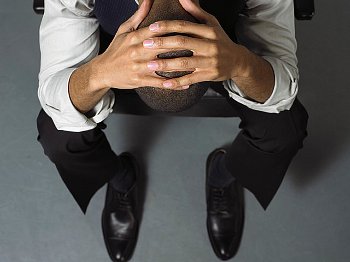
Depression has become a major problem among Latino men and although nearly twice as many women suffer from depression, the disease strikes seven percent of men – some six million – each year, according to the National Institute of Mental Health. This medical condition affects a person’s body, mood, and thoughts. If left untreated it can turn fatal: about seven percent of depressed men commit suicide.
According to the National Latino and Asian American study, 54 percent of Latino men with at least one episode of major depression in their lifetime do not recognize having a mental health problem and Latinos are more reluctant to getting treatment for depression.
“Research and clinical findings reveal that women and men may talk differently – or in the case of men, not talk – about symptoms of depression,” said Sergio Aguilar-Gaxiola M.D., Ph.D., of the National Advisory Mental Health Council. “Traditional gender roles in the Latino community may further contribute to an unwillingness to talk about feelings of depression.”
Men with depression may be more likely to turn to alcohol or drugs, or to become frustrated, angry or irritable instead of acknowledging their feelings and ask for help. Some men may throw themselves compulsively into their work or hobbies, attempting to hide their depression from themselves, family, and friends. Other men may respond to depression by engaging in reckless behavior.
Latino men tend to present more physical symptoms rather than mental ones. For example, men from Puerto Rico and South American countries complain about multiple pains, aches, migraine headaches, joint pain, weakness, and fatigue. And Hispanic men are more likely to seek help from the clergy or a curandero.
“There is a whole slew of barriers [to treatment],” says Gustavo Avila, an associate professor at the University of California-Irvine Department of Psychiatry and Human Behavior. Avila lists unfamiliarity with the language and economic difficulties among the top obstacles.
Finding medication that works is very difficult due to the unwillingness of these men to participate in psychotherapy or take antidepressants when they are prescribed. One common side effect of the medications is sexual dysfunction which is particularly difficult for Latino males, however, the latest medical studies confirm that depression may often be alleviated or sometimes prevented with good health habits. Proper diet, exercise, and taking time out for fun and relaxation may work together to prevent a depressed mood.
